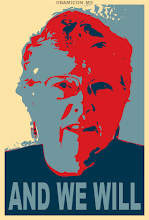Recall Vote in Bolivia Seen as Win for Morales - NYTimes.com
By SIMON ROMERO
Published: August 10, 2008
COCHABAMBA, Bolivia — President Evo Morales seemed to have secured an easy victory in a recall referendum on Sunday, giving him a fresh mandate to advance efforts to redistribute petroleum royalties and private farmlands among the country’s impoverished indigenous majority.
Indigenous women stood in line to vote near the capital, La Paz. Mr. Morales seemed on his way to an easy victory in a recall referendum.
Reports on national television, citing preliminary vote counts, said that Mr. Morales, a former coca farmer whose pro-indigenous policies and alliance with President Hugo Chávez of Venezuela have irritated the Bush administration, had won the referendum with 63.5 percent supporting his administration.
Mr. Morales won the presidency in 2005 with 53.7 percent of the vote.
While the early results pointed to strong support for Mr. Morales, they also revealed deep rifts in Bolivia, with voters rejecting by wide margins his policies in three prosperous lowland provinces and in Sucre, the seat of the judiciary. By contrast, Mr. Morales, an Aymara Indian, appeared to win handily in highland provinces where poor, indigenous voters predominate.
“More conflict seems to be forthcoming unless the government is wise enough to enter into dialogue” with Mr. Morales’s opponents, said Eduardo A. Gamarra, a Bolivian political scientist at Florida International University. “Given the history of conflict over the past two years, I don’t see this as occurring in the near term.”
Indeed, Mr. Morales seemed to show mixed interest in reconciliation while casting his vote Sunday morning near his small coca farm in the Chapare, a coca-growing area in central Bolivia. He told reporters that he would soon ask voters to approve a new Constitution, which would polarize the nation and has been rejected as illegally drafted by political opponents.
“We are deepening the process of change under way,” Mr. Morales said later Sunday. But he also said that he would respect the vote in areas where he lost.
In the days leading up the vote, protesters blockaded airport runways and prevented Mr. Morales from traveling to several regional capitals, reflecting the repudiation of his policies in petroleum-rich provinces, called departments, like Tarija and Santa Cruz. One opposition bastion, Sucre, has mounted a seemingly quixotic campaign to be named the country’s capital.
Heinz Dieterich, a political analyst in Mexico who writes widely on leftist movements in Latin America, summed up Mr. Morales’s situation as being “an exile in the majority of the provinces of his own land.”
“The de facto division of Bolivia into two countries” continues, Mr. Dieterich said in a recent essay, “until one of the two antagonistic powers is in a condition to deliver the decisive blow, to liquidate the other.”
The referendum originated in May in what now seems to be a self-defeating effort to remove Mr. Morales from office by Podemos, an opposition party whose influence has eroded.
Many voters here in Cochabamba, Bolivia’s third-largest city and the scene last year of street battles between the president’s followers and his critics, appeared ready to support Mr. Morales going forward, though with some hesitance.
“I don’t support all of his ideas, but Evo is our first indigenous president and should be given the chance to finish his term,” said Yovana Vélez, 25, a publicist. “The last thing we need is more upheaval, more chaos.”
Mr. Morales, 48, appears ready to use the referendum to proceed with policies that have enraged his political opponents, like the acceptance of tens of millions of dollars from Venezuela.
Over the weekend, Mr. Morales’s government said it had secured $225 million in financing from Venezuela and Iran to create a state cement company. The move would deal a blow to a top political rival who controls much of the country’s cement output.
The prefects, or governors, in several rebellious departments have a sharply different view of how Bolivia should develop. Their continuance in office was also part of the referendum on Sunday, with at least three of them winning by a wider margin than the president.
Some opposition leaders also showed little desire for reconciliation. “No to the big foreign monkeys!” Rubén Costas, governor of eastern Santa Cruz, shouted in a televised speech Sunday night, revealing some the racist language used to refer to Venezuela.
While these departments have stopped short of secession in recent months, they have moved forward with votes on statutes seeking greater autonomy, arguing with Mr. Morales over everything from the distribution of natural gas revenues to control over regional police forces.
Perhaps the most contentious issue has been Mr. Morales’s land reform project in Santa Cruz, the economically vibrant eastern department. Rich landowning families in the area have clashed with government officials seeking to distribute their landholdings to Aymara and Quechua Indian migrants.
Despite the apparent victories by some opposition governors, Mr. Morales’s hand was strengthened by the seeming defeat of two governors, in the capital, La Paz, and here in Cochabamba. Another governor, a supporter of Mr. Morales in Oruro department, also lost. Under the rules of the referendum, Mr. Morales can appoint their successors.
Signaling how the referendum may reignite tensions, the governor of Cochabamba, Manfred Reyes, said the referendum itself was unconstitutional. “I go on being prefect of Cochabamba,” said Mr. Reyes on Sunday night.


Links to this post:
Create a Link
<< Home